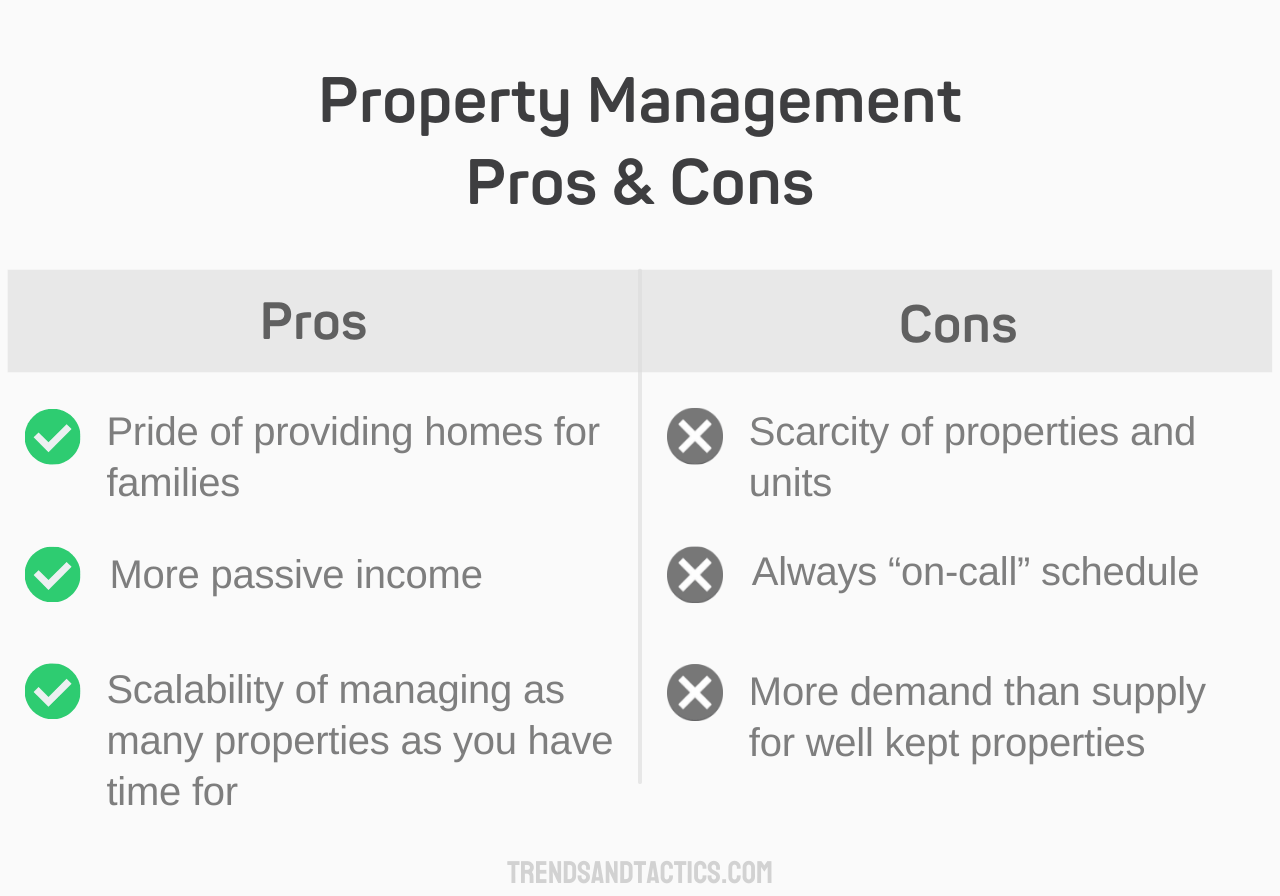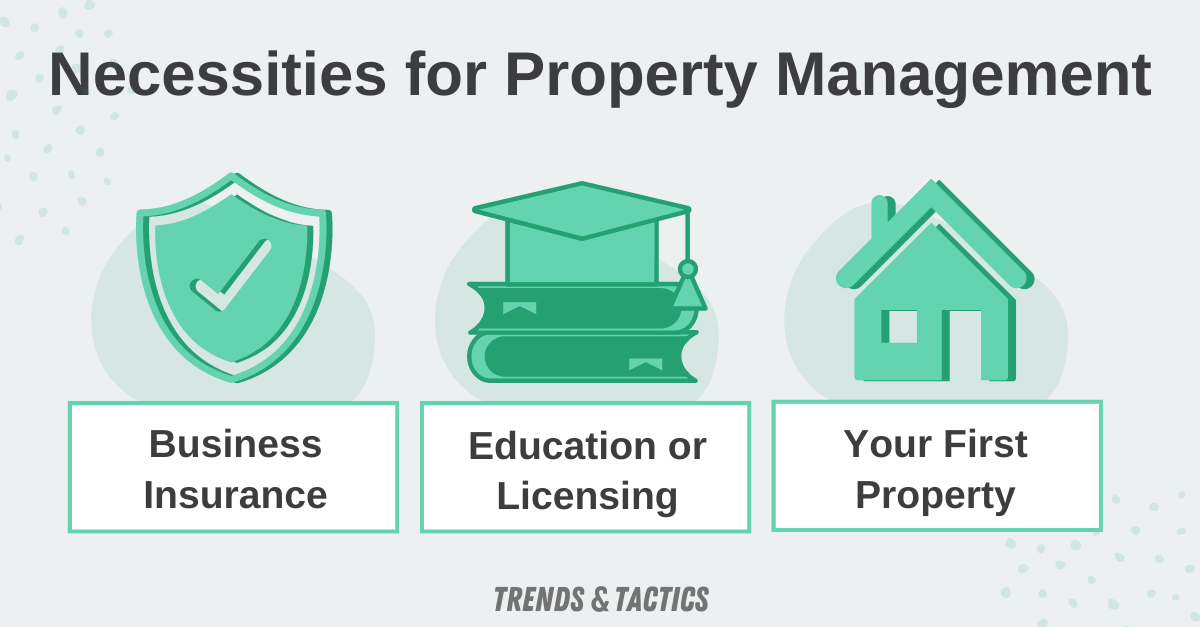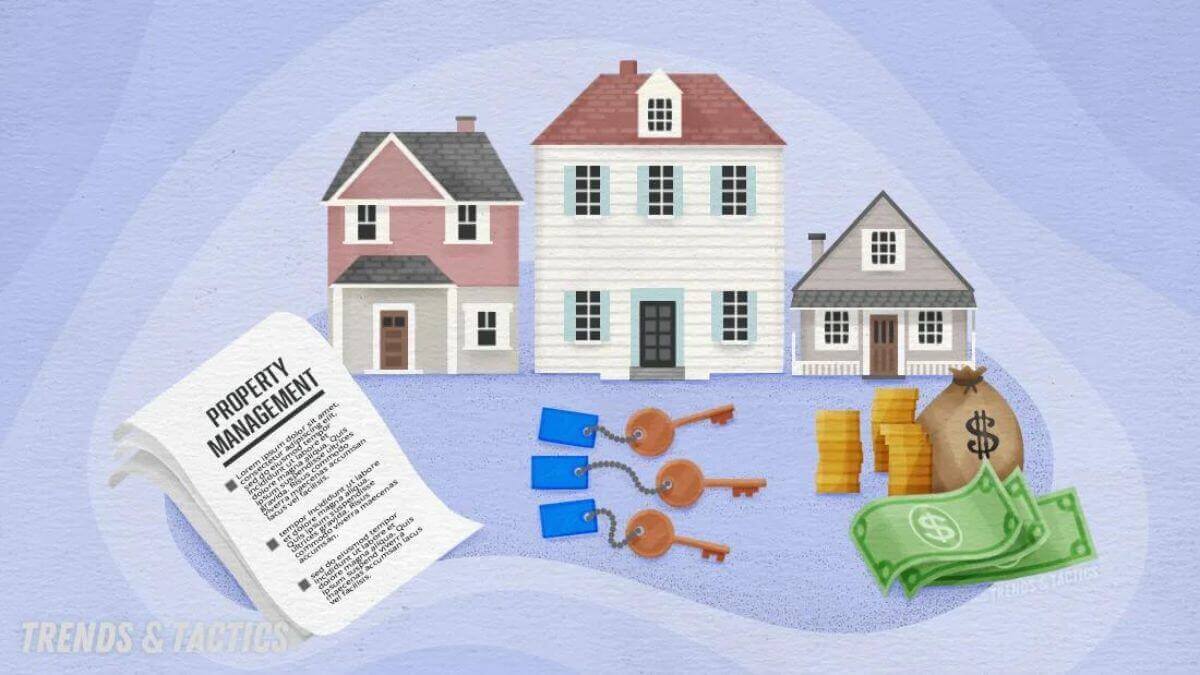Justin Bradley is a real estate agent turned property manager who originally started his property management group to allow for his wife to stay at home with their kids.
He had no idea starting a property management business could be so successful, and that he’d develop such a craft for providing renters with incredibly well cared for properties.
If you’re wondering how to start a property management company, Justin’s here to share a few tips.
What is the first thing you should do when starting a property management business?
Let’s start at the beginning. You’re thinking of starting a property management company, but you’re not sure where to start!
Justin encourages new property managers to “have support from family and friends, insurance and a plan of attack.”

Justin’s personal plan of attack is owning as well as managing his properties, and growing within his family’s comfort zone. This allows him to:
- Scale his business to whatever is right for his family at the time.
- Benefit from the totality of his earnings by owning his properties instead of passing them on to a different landlord.
Typically, there are two routes to take when starting a property management company.
Route 1: Own Your Properties
Maybe you’re the type of person who wants to go all-in. You have a passion for properties and a knowledge of real estate.
You might go out and buy a property (Justin purchased his first property at an auction) and get to work renting it out. This is the route Justin took, and it can be more lucrative for the business owner.
You can find out how much landlords make or how to make money with rentals to give you an idea of what your earning potential could look like.
Route 2: Middleman Management
Perhaps you’re a detail oriented person who enjoys responsibility, and you’ve heard that there’s a job out there where you can make money managing property details and tenant issues without buying a property to rent.
You can start managing a landlord’s property by taking all this off their plate.
This type of property manager is typically paid a salary, rather than reaping the benefits of earning money from the properties themselves.
You’ll still have your own property management company, you just won’t own the properties.
Tactic for Success
Justin urges anyone working in the housing market to be honest and receptive with customers and employees. He says “keys to success in property management, flipping homes, or managing your own portfolio of units is being open minded to and upfront with people.” If you’re starting your own property management company, these principles will help set you up for success.
Why do most real estate agents not want to get into property management?
If you’re intrigued by the property management world, chances are you might have a background in real estate. Justin does!
Understanding the real estate world helps a property manager to comprehend lease agreements, communicate with maintenance professionals and tenants alike, and have a “leg up” when it comes to education required to successfully start a property management company.
Trend on the Rise
Even after home prices skyrocketed during Covid, Justin says that the rental industry has stayed lucrative. Rentals have been in demand before, during and after the volatility of 2020, and, as Justin has found, customers are currently drawn to excellent customer service and quality care for their dwellings.
A Slower Payout
Justin says that sometimes real estate agents are hesitant to jump into property management because “the pay isn’t a big commission like a traditional property sale.
They may view it as a headache and too much work for little return.”
This can be especially true when following certain regulations for specialty rentals such as Section 8 arbitrage or earning money with Airbnb.
However, he has found that over time property management can be lucrative. It’s an investment in an industry that keeps giving back, rather than a one time earning from a one time sale.
Pros & Cons
Speaking of why someone might not want to jump into this industry, let’s take a look at the benefits and drawbacks to working as a property manager that Justin points out to potential entrepreneurs:

Is starting a property management company worth it?
Property management isn’t for everyone.
Here are a few things you should consider before getting started with property management.
Making Money on Your Investment
Considering the two routes that are possible to take to property management (owning your own properties and middleman management), it may be a great option for you, but it could also be a risk.
Owning your own property provides arguably the best option for payout, since you’ll be investing in a property that provides more passive income as you manage and upkeep the property.
If you use the property to start a short term rental business the payout can be even higher.
In this case, you can build your company as you purchase more properties, hire personnel as you grow, and truly build a successful property management business.
Since starting his property management company in 2015, Justin is happy with his decision to buy his first property and scale his business to the needs of his family.
As with any investment, there are risks and each entrepreneur should do their research before buying a property to rent out. Make sure your first property is worth it!
Tactic for Success
Justin says that real estate classes truly helped him have a grasp on property management. His background in real estate came in handy when starting his company. Gaining real estate knowledge will serve you well if you’re looking to get into property management, no matter your background.
Getting Tenants
Justin also recommends that you secure support from family and friends as you’re starting your company to set yourself up for success.
As he’s built his business by word of mouth and marketing, he’s benefited greatly from his reputation as current tenants spread the word and new tenants are interested in his properties.
He also supports a few local softball teams, giving back to the community and getting his name out there.
Trend on the Rise
Justin says that currently, the rental market is just as hot as the buying market for homes. Some buyers aren’t quite ready to take the leap to home ownership, so they’re renting in the meantime. It’s a great time to get into property management.
What does a property management company do?
As you decide if property management is truly right for you, it’s important to understand all the responsibilities of a property manager.
Justin says you won’t truly understand all the ins and outs of management until you take the leap and start renting out a property, but here are a few functions you should be aware of.
The Main Functions of a Property Management Company
- Ensure Dwelling Cleanliness – Before new tenants move in, the property manager ensures that the property is clean and ready to inhabit.
- Market and Show Properties – When a unit is open to renters, the property manager markets these and shows them. Justin markets many of his open properties on Facebook.
- Screen New Tenants – Speaking of tenants, a property manager chooses requirements for new tenants and screens any interested applicants.
- Provide and Uphold Lease – Property managers work with a financial professional to draw up a lease that will protect them from liability, and they uphold this lease with each tenant.
- Provide Property Maintenance – At any given moment, a unit might have issues. The property manager serves as the middle man between tenants and maintenance professionals to get problems fixed.
- Collect Rent – In order to provide the landlord (or themselves) with income, the property manager ensures that each tenant pays their rent as outlined in the lease agreement.
Property management startup checklist
Now that you know all the nuances of property management, it’s time to get your ducks in a row and gather all the things you’ll need to start your own company.

What You Need To Start a Property Management Business
- Business Insurance – You’ll need insurance coverage to protect your new business. Justin says this is an essential part of starting out and protecting future growth.
- Business Plan – An essential part of starting any business is planning out a course of action to guide your business to success. Set goals and budget for expenses with your business plan.
- Education or Licensing – Real estate or property management licensing isn’t required in all states, but Justin advises that it’s incredibly helpful for a successful start.
- Your First Property – Justin bought his first property at an auction, and dove right in. You could buy a property or work as the middleman for a current property owner and lender.
- Maintenance Connections – Chances are, you don’t know every trick of the trade when it comes to property maintenance. Network to gain contacts in the maintenance world – think plumbing, electrical and landscaping.
- Support From Family and Friends – A little known advantage to a successful property management business is support from those closest to you – they can help get the word out and connect you to new customers.
Wrapping Up
Property management is a diverse and lucrative world that many think about getting into. If you’re like Justin and you want to gain some flexibility and some extra cash, it might just be the business for you.
Brenna is a finance guru who enjoys writing about entrepreneurial opportunities and personal finance tips. She graduated from Liberty University with a bachelors degree in business and now helps small businesses market their products as a digital marketing consultant.






